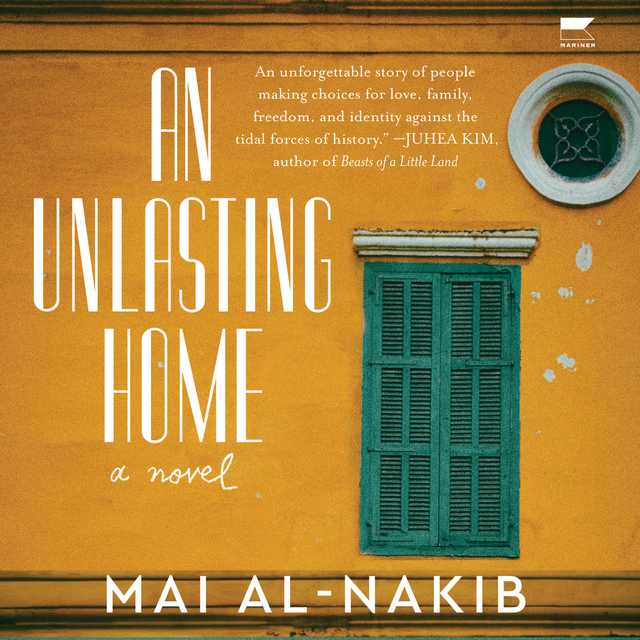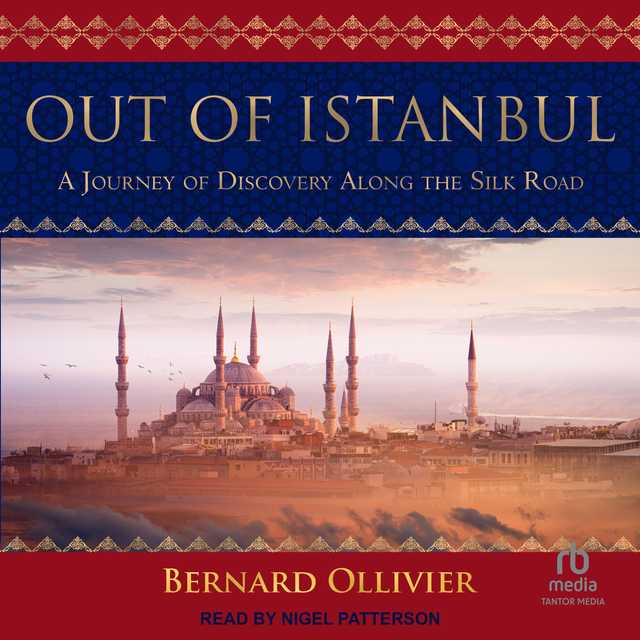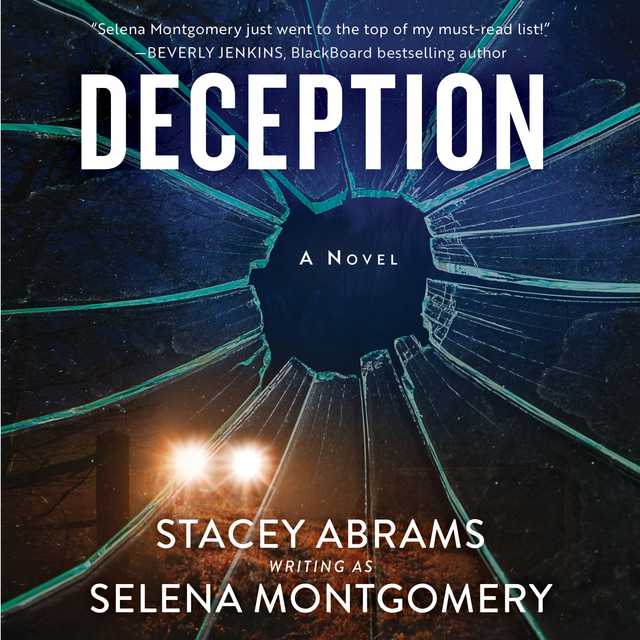An Unlasting Home Audiobook Summary
The debut novel from an award-winning short story writer: a multigenerational saga spanning Lebanon, Iraq, India, the United States, and Kuwait that brings to life the triumphs and failures of three generations of Arab women.
In 2013, Sara is a philosophy professor at Kuwait University, having returned to Kuwait from Berkeley in the wake of her mother’s sudden death eleven years earlier. Her main companions are her grandmother’s talking parrot, Bebe Mitu; the family cook, Aasif; and Maria, her childhood ayah and the one person who has always been there for her. Sara’s relationship with Kuwait is complicated; it is a country she always thought she would leave, and a country she recognizes less and less, and yet a certain inertia keeps her there. But when teaching Nietzsche in her Intro to Philosophy course leads to an accusation of blasphemy, which carries with it the threat of execution, Sara realizes she must reconcile her feelings and her place in the world once and for all.
Interspersed with Sara’s narrative are the stories of her grandmothers: beautiful and stubborn Yasmine, who marries the son of the Pasha of Basra and lives to regret it, and Lulwa, born poor in the old town of Kuwait, swept off her feet to an estate in India by the son of a successful merchant family; and her two mothers: Noura, who dreams of building a life in America and helping to shape its Mid-East policies, and Maria, who leaves her own children behind in Pune to raise Sara and her brother Karim and, in so doing, transforms many lives.
Ranging from the 1920s to the near present, An Unlasting Home traces Kuwait’s rise from a pearl-diving backwater to its reign as a thriving cosmopolitan city to the aftermath of the Iraqi invasion. At once intimate and sweeping, personal and political, it is an unforgettable epic and a spellbinding family saga.
Supplemental enhancement PDF accompanies the audiobook.
Other Top Audiobooks
An Unlasting Home Audiobook Narrator
Leila Buck is the narrator of An Unlasting Home audiobook that was written by Mai Al-Nakib
Mai Al-Nakib was born in Kuwait and spent the first six years of her life in London, Edinburgh, and St. Louis, Missouri. She holds a PhD in English from Brown University and is an associate professor of English and comparative literature at Kuwait University. Her short story collection, The Hidden Light of Objects, was published by Bloomsbury Qatar in 2014. It won the Edinburgh International Book Festival’s 2014 First Book Award. Her stories and essays have been widely published, most recently in World Literature Today and The LA Review of Books.
About the Author(s) of An Unlasting Home
Mai Al-Nakib is the author of An Unlasting Home
More From the Same
- Publisher : HarperAudio
- Abraham
- American Gods [TV Tie-In]
- Dead Ringer
- House of Sand and Fog
- Prey
An Unlasting Home Full Details
| Narrator | Leila Buck |
| Length | 12 hours 4 minutes |
| Author | Mai Al-Nakib |
| Category | |
| Publisher | HarperAudio |
| Release date | April 12, 2022 |
| ISBN | 9780063135130 |
Additional info
The publisher of the An Unlasting Home is HarperAudio. The imprint is HarperAudio. It is supplied by HarperAudio. The ISBN-13 is 9780063135130.
Global Availability
This book is only available in the United States.
Goodreads Reviews
Collette
May 02, 2022
"To proceed forward requires periodic turns back, even if those turns are denied, even if they hurt like hell. The past persists like a wound. If it isn't locked in place, it knocks around endlessly..." This insight from Sara, the main character in An Unlasting Home, seems to encapsulate the timeless human struggle to reconcile the past with the present before we can move on. Expressed in actions, felt as longing, we must do what we need to do (return home, reopen a lost connection, listen to the life stories of our loved ones) before we can pick up our own pieces and arrange them in a meaningful way.These were some of my reflections as I closed Mai Al-Nakib's immersive debut historical fiction novel. This is the story of Sara, a modern day professor of philosophy at Kuwait University who is charged with blasphemy when one of her fundamentalist students records her lecture on Nietzsche. A new law that carries with it a possible sentence of execution, we sit with Sara in the accompanying months and witness her worry, indignation and alienation to the country of her childhood. She finds herself without her family, due to either death or distance, and she cocoons herself in memories and reflections on the past. We travel back in time to take in the life stories of the complex and nuanced lives of her family, focusing mainly on her grandmothers (Yasmine and Lulwa), mother (Noura) and Maria, the ayah that was her second mom. Their stories are filled with sacrifice and fierce love, and beautifully depict the challenges of being a woman in a time and place where your voice and ambition must continually be stifled. Sara also tells her own story; a story of living both in Kuwait and the United States and struggles with finding her identity and place in both worlds as well as her passivity in her romantic relationships.The other presence in this novel is Kuwait and its complicated history paired against Sara's complicated relationship with it. This country holds her childhood memories and is steeped in feelings she is not ready to let go, yet the modern-day fundamentalism is a heavy robe that is slowly suffocating her. While this is a work of fiction, the Author's Note explained that the elected parliament in Kuwait did pass an amendment in 2013 (by a wide margin) making blasphemy a capital crime, but the amir of Kuwait rejected the decision.With all of this going on, the reader is transported seamlessly between countries (Kuwait, India, the United States, Lebanon, Iraq, Turkey) and immersed in the culture and history through the descriptive and exotic details. I could feel the heat and dust, smell the burning oil, see the humid Indian forests, taste the Middle Eastern fare. I loved reading this multi-layered story because I was simultaneously learning about cultures I don't know enough about. I look forward to more works by the gifted Al-Nakib and plan to read her collection of short stories, The Hidden Light of Objects. I received an ARC of this novel through a Goodreads Giveaway and want to thank the author and Custom House for the opportunity to read and review this book.
Erin
July 17, 2022
But I hear the affirmation in that negation, one that I, like my mother, have long delayed acting on. A yes to creativity, a yes to life now, not in some future heaven, not in eternity. An affirmation of my earned capacity to think, despite every effort to stifle it. That “No!” may be damning, but it’s so damn good.This was absolutely gorgeously written, weaving stories of multiple generations of women, each not afraid to express their own wants in their narrative voices. What more could you ask for?Each different POV chapter outside of Sara’s were like tales, I don’t know how to describe it, but I loved it. For a book that felt right up my specific alley, this was more so than I anticipated. So good.
morgen
March 17, 2022
This book did what my favorite books since I first became a reader have done- took me to a different place, showed me how others live, how different they are, but still how similar. This is a multigenerational story of Sara, living in modern day Kuwait, and her mother, grandmothers and ayah; the paths they took and struggles they faced so that she could be where she is, a modern woman with freedom to drive, own property, dress as she chooses. But that freedom is under threat- as fundamentalists gain political power, blasphemy has been made a capital crime, one that philosophy professor Sara has now been accused of after one of her students recorded her lecture on Nietzsche in which she stated "God is dead." As the first person charged under the law, some forces want to make an example of her, her lawyer isn't certain of the outcome, and she is wrestling with choices- if she recants, charges might be dropped, but is she compromising her values? Should she reach out to her brother, who has vowed never to return to Kuwait, but would surely do so for her? As she struggles with her choices and fears we travel back through generations, and see Mid-East events from the perspective of people who lived through it. I couldn't help but also reflect on current events here, as states undo progress made over decades in order to disenfranchise some citizens.This is fiction, and the author notes that while a bill similar to the one Sara was charged under was passed, the president refused to sign it; it is not currently the law in Kuwait.
James
March 01, 2022
great book check it on amazon https://amzn.to/3vtoqZ2
Aziz
April 29, 2022
The first half of the book was a struggle to read. There were many characters to follow and many relationships to note. But I really enjoyed reading Sara's story. Readers living in Kuwait or the middle east could relate to the "gravitational pull" that kept Sara living in her hometown while having the option to live anywhere else. It was also interesting to read about Kuwait's transformation from the 80's through the perspective of a Kuwaiti girl that was brought up in a liberal society then subconsciously "forces" herself to live her adult life in a transformed conservative society.Also note that usually its difficult to skip chapters in a novel but in this case I skipped most of the chapters that weren't about Sara. And it worked great for me :D
Reads by W
April 26, 2022
I’ve been a reader for what seems like my whole life. Always to be found with my nose in a book, I traveled in my imagination from Narnia to Anytown, USA - and everywhere in between. As a teenager, my reading experiences changed in both depth and perception as I tackled more serious topics and expanded the range of authors I read from. But there was always something missing. And that was my own narrative. Where were the English-language books about Arabs? Written by Arabs? Set in the Arabian Gulf? I don’t think I was really aware of this gaping hole until I went to the US for college only to discover that the vast majority of people, including students attending the most elite of educational institutions, had no idea what my part of the world was like. Stereotypes about sand and camels and oil wells were the norm and post 9/11, you can imagine how much worse the assumptions got. So, perhaps my review of this book is tinged with bias, but I feel profoundly grateful to Mai Al Nakib for writing this book because FINALLY. When you so rarely see an authentic depiction of yourself or your community in books or movies or music, it is overwhelming when it happens at last. And it’s my sincere belief that books are one of the most important ways in which we learn about other people and places. It’s how we build tolerance and compassion and understanding for others. At least it is for those of us who are readers. And for those who aren’t, that’s why representation in other media is equally important -whether that is film or TV or music. I could go on about this topic forever, but I’ll stop here. Back to the book. It goes without saying that none of the characters in in An Unlasting Home mirror my own lived experience, but I know and understand them on a visceral level. I’ve known a few Saras, I’ve heard of many Lulwas and Yasmines, and I had my own version of Maria (from Goa too!) I didn’t need to keep referring to the family tree because the names and the places - and the foods and the expressions - were second-nature to me. Despite the sadness of the stories, I found myself smiling anyway because the story felt like home. You can read the plot synopsis yourself. In brief, Mai Al Nakib shares the stories of 3 generations of Arab women. Through them, she deftly traces Kuwait’s evolution from the earlier part of the 20th century to the present time. The first-person narration is provided by Sara, a Professor of Philosophy at the local university. Things go wrong when she is accused of blasphemy after teaching Nietzsche to a class of conservative female students. She is facing a serious court case and a potential death sentence as she grapples with the changes that have transformed her country of birth into a place she no longer recognizes or identifies with. This feeling of disassociation springs from the existential battle between reactionary and progressive forces taking place in the country. Which of the two will triumph is still uncertain, but the truth of the matter is that some form of this battle is playing itself out everywhere and Sara’s story in this book is a microcosm of this greater phenomenon. Her bewilderment as she wonders where the Kuwait of her childhood has gone is moving. She struggles to reconcile her memories with the grim reality she faces at the hands of conservatives whose ascent post-invasion of Kuwait has almost eradicated the sense of openness and migration that once prevailed. I enjoyed the author’s writing style, and how seamlessly she traveled between timelines. It takes a great deal of talent to do that without losing the reader. She created her characters thoughtfully and intentionally, representing a cross-section of Arab women in a nuanced way. At its core, the book explores the idea of homeland, identity and belonging. Each of the women in the book experience displacement of some sort. Some of them move against their will, others to create opportunities their countries cannot give them, and still others eagerly move to seek new adventures. The common thread is a yearning to belong that remains just out of reach. I loved the fact that Maria’s story was included in this context, and that she was portrayed as a member of the family. It’s the first time I’ve seen that perspective in print, and it warmed my heart. I also appreciated the way the author weaved in the lack of concern over environmental issues and how this reflects the wider degradation the protagonist feels all around her.I’ll be honest - some parts of the various storylines felt a tad far-fetched or unlikely, but who cares? I don’t want to nitpick. In the overall scheme of things, it didn’t really detract from my general reading experience. I will end here by saying I am so happy this book exists. My hope is that it will fly off the bookshelves and into your hands, and that it will encourage other Khaleeji writers to put pen to paper and write their stories so that by the time my nieces grow up, they will have an abundance of books to choose from in which they recognize and see parts of themselves. And as a bonus - perhaps this will herald a time when they will study abroad without being treated like exotic beings hailing from the land of sand, camels, and oil wells.
Hanan
May 07, 2022
AlNakib is a story teller. That’s what I got when I read her short stories collection, and that’s what I’m getting here, but with a more intricate labyrinth and more historical details that make it all the more thrilling. The stories are familiar, at least to people in my generation, but the captivating narrative brings to them this emotional attachment that is inescapable. Tears were shed, I’m not too shy to admit.It’s interesting and quite coincidental (thought not surprising) that the novel came out at the same time when there is an actual controversy in Kuwait about a professor in the humanities who showed the students what was deemed “inappropriate material.” AlNakib’s imaginative foretelling of what would’ve happened had the amendment to Article 111 gone through is not too far from reality at all.But Sara’s story, the professor under interrogation, though most paramount to our time, is only a flicker in the myriads of stories drawn of women whose fate pulls them home and away from home. A story about the difficulty of defining a home, and the near impossibility of giving it up even when it kills you.
Zibby
September 29, 2022
An Unlasting Home is a multigenerational saga that traces the lives of five formidable women from the early twentieth century to 2013 and across the Middle East from Turkey to Lebanon, Iraq, Kuwait, India, and the United States. The novel opens with the protagonist, Sara, a professor of philosophy at Kuwait University, who is accused of blasphemy under a new rule designating it a capital crime. As she awaits trial, she begins to look back, realizing that she has to reckon with her past, her family's past, and the history of her country. She begins to untangle the generational lines of the women who've shaped her: her grandmothers, Yasmine and Lulwa; her mother, Noura; and her beloved ayah, Maria, who helped raise her. Through this process, Sara comes to terms with why her life's been stalled and why she returned to Kuwait from the United States, and she figures out who she wants to become. In many ways, the novel is about inherited trauma and migratory passage, loss, resilience, but also how women can overcome these political, personal, and historical burdens to survive.The author writes with such vivid prose that you feel as if you are there. When she goes to prison and sees all of the women's stories on the wall, it's heartbreaking and eye-opening. Sara becomes the pivot holding all of these women's stories together. The first part is Lulwa and Yasmine with Sara interspersed. The second part is about Noura, her mother, and Maria, her caregiver. And the third part belongs to Sara. There was this sense that there is movement, Sara moves through all of their stories and then comes out at the end, so the reader moves with her as she collects old stories and comes to terms with her current situation. To listen to my interview with the author, go to my podcast at:https://www.momsdonthavetimetoreadboo...
Alia
October 02, 2022
The way I LOVED this book. Be prepared for a very hefty, overly elaborate and detailed book review. Basically, this is a story of three generations of women with links to Kuwait. Mama Sheikha, Mama Yasmine, Mama Lulwa, Noura, Maria and Sara. The plot was so well thought through; it's the story of Sara's ancestors, against the story of Sara facing a blasphemy accusation in Kuwaiti court, super creative. One thing I appreciated about the book was timing; the way the stories parallel one another, the timeline of when different plots unravelled, and even the cliffhangers which I usually despise, were all so well executed. The book has so many intersectional themes that would resonate with each reader differently in a way that perfectly captures its universality in spite of its particularity. For me, I loved the themes of bifurcated identities, national transformation, migration and feminism. Moving onto my favorite parts of the book, I loved the sections on Poona, the mental image coming to mind so easily as I imagined my mother's mystical treasured home in Tanzania. I also loved how every historical event [the Iraq invasion, 9/11 and the 2013 penal code on blasphemy in Kuwait] came to life through the author's entanglement of at least one character in them. Overall, this was a brilliantly executed piece of intergenerational, cross-cultural, intersectional historical fiction. For either of those elements to be achieved in isolation is challenging, so their gentle interspersion and seamless interaction renders this book a beautiful art piece to be applauded, in my humble opinion.
Susan
April 30, 2022
Multigenerational and set across continents, this is a story of Arab women and their choices.Sara, a Professor of Philosophy at the University of Kuwait, is arrested on the charge of blasphemy when a student records her lecture quoting Nietzsche's “god is dead.” It makes Sara question why she came back to this place after she and her family lived in the United States for many years. The Kuwait of her childhood is gone. The chapters shift from Sara to her grandmothers’ and her mother’s stories. We also hear from Maria, the woman who would sacrifice so much to raise Sara and her brother. There is a lot to wrestle with in each woman’s life - family dynamics, political turmoil, cultural customs, religion, and more. Each woman has moved from their home, some forced and some by choice, but all yearned to belong.It surprised me that this penetrating story was a debut! I’ll be watching for what Mai Al-Nakib writes next.Thank you @williammorrowbooks for this gifted copy.
Nel
April 24, 2022
What an incredibly powerful and thought-provoking novel. In Mai Al-Nakib's first full-length novel, she hits a home run with an insightful story that underscores the difficulty many women have in countries that don't recognize female autonomy. I fell in love with these resilient women as they trekked through a life that was often dictated by societal and familial pressures and expectations. These were tenacious women who understood the need for compromise as they dealt with adversity in their ever-changing circumstances.I was moved deeply by the theme of an unsettled life, one wrought with uncertainty, and often a sense of displacement. The multi-generational storyline was compelling and really provided a mighty web through which the women were connected.It takes some time to recognize the significance of this novel. Initially, it seems somewhat disjointed, but with the help of the family tree in the beginning of the novel, Al-Nakib weaves together a beautiful saga, well worth the initial effort.Many thanks to partner, @bibliolifestyle @marinerbooks for including me on this tour. It was an absolute privilege to read this poignant work.For more of my reviews, please check out my blog at www.mamasgottaread.blogspot.com or follow me on Instagram at www.instagram.com/mamasgottaread.
Gabriella
July 21, 2022
Such a fascinating and beautifully crafted multi-generational tale of Arab women, the struggles and triumphs they face, and the ways their lives intermingle, made even more vibrant by the author's care for and understanding of the story, its characters, setting, and culture. Authenticity is such a breath of fresh air in a story, especially in one such as this, and as a woman of Lebanese heritage myself, this was such a special experience and a book that will remain with me.
Purpleaekua
November 09, 2022
I enjoyed An Unlasting Home immensely, reading about the intertwined history of Kuwait, India, Pakistan, Lebanon, and Palestine. The Women are the repositories of history and culture. The changing times of the different eras is seen in each chapter.
Jodi
April 18, 2022
ARC from the publisher - I enjoyed this book. The history of the diaspora of Palestinians and other displaced Mid-Eastern cultures was well researched. Sara and her family's roots run deep, but the soil of Kuwait is thin, and not welcoming to civilization, in the current political and religious climates. Perhaps one day, in God's time, we will learn how to live together without hate and ugliness - and without the divisions of artificial "nationalities", "religions", "politics" and such, that drives a blasphemy charge like this.
Most Popular Audiobooks
Frequently asked questions
Listening to audiobooks not only easy, it is also very convenient. You can listen to audiobooks on almost every device. From your laptop to your smart phone or even a smart speaker like Apple HomePod or even Alexa. Here’s how you can get started listening to audiobooks.
- 1. Download your favorite audiobook app such as Speechify.
- 2. Sign up for an account.
- 3. Browse the library for the best audiobooks and select the first one for free
- 4. Download the audiobook file to your device
- 5. Open the Speechify audiobook app and select the audiobook you want to listen to.
- 6. Adjust the playback speed and other settings to your preference.
- 7. Press play and enjoy!
While you can listen to the bestsellers on almost any device, and preferences may vary, generally smart phones are offer the most convenience factor. You could be working out, grocery shopping, or even watching your dog in the dog park on a Saturday morning.
However, most audiobook apps work across multiple devices so you can pick up that riveting new Stephen King book you started at the dog park, back on your laptop when you get back home.
Speechify is one of the best apps for audiobooks. The pricing structure is the most competitive in the market and the app is easy to use. It features the best sellers and award winning authors. Listen to your favorite books or discover new ones and listen to real voice actors read to you. Getting started is easy, the first book is free.
Research showcasing the brain health benefits of reading on a regular basis is wide-ranging and undeniable. However, research comparing the benefits of reading vs listening is much more sparse. According to professor of psychology and author Dr. Kristen Willeumier, though, there is good reason to believe that the reading experience provided by audiobooks offers many of the same brain benefits as reading a physical book.
Audiobooks are recordings of books that are read aloud by a professional voice actor. The recordings are typically available for purchase and download in digital formats such as MP3, WMA, or AAC. They can also be streamed from online services like Speechify, Audible, AppleBooks, or Spotify.
You simply download the app onto your smart phone, create your account, and in Speechify, you can choose your first book, from our vast library of best-sellers and classics, to read for free.
Audiobooks, like real books can add up over time. Here’s where you can listen to audiobooks for free. Speechify let’s you read your first best seller for free. Apart from that, we have a vast selection of free audiobooks that you can enjoy. Get the same rich experience no matter if the book was free or not.
It depends. Yes, there are free audiobooks and paid audiobooks. Speechify offers a blend of both!
It varies. The easiest way depends on a few things. The app and service you use, which device, and platform. Speechify is the easiest way to listen to audiobooks. Downloading the app is quick. It is not a large app and does not eat up space on your iPhone or Android device.
Listening to audiobooks on your smart phone, with Speechify, is the easiest way to listen to audiobooks.






























